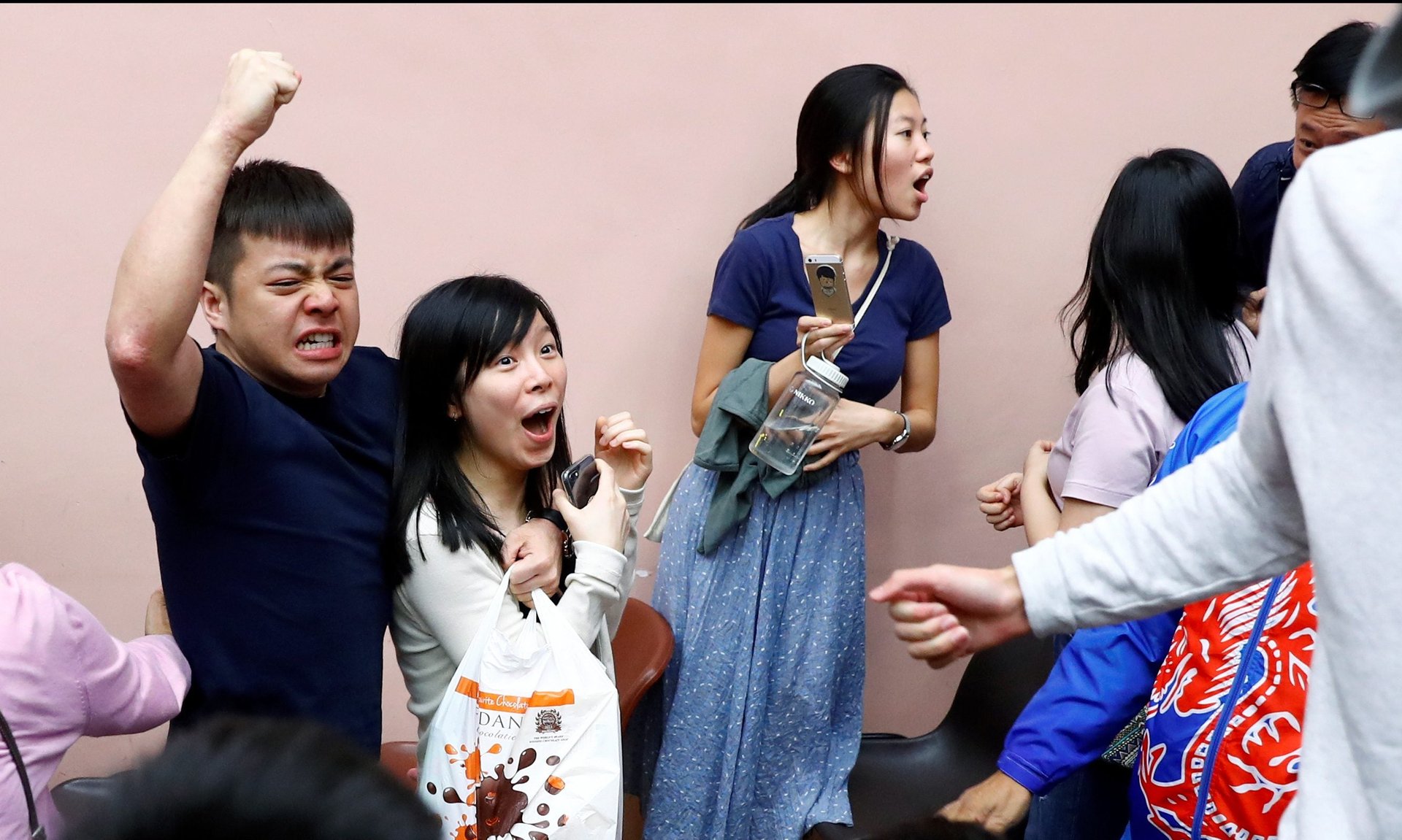Hong Kong’s “referendum” has voted deafeningly for democracy—and against Beijing
For the first weekend in a long time, Hong Kongers had a break from tear gas and bloodshed and took to the ballot box to deliver an embarrassing defeat for the city’s government—and Beijing.


For the first weekend in a long time, Hong Kongers had a break from tear gas and bloodshed and took to the ballot box to deliver an embarrassing defeat for the city’s government—and Beijing.
A record 71% of people turned out to vote in yesterday’s (Nov. 24) district council election—usually a poorly attended affair more concerned with bus routes and pest extermination than political ideology—as Hong Kongers grabbed the chance to use the city’s only fully democratic polls as a de facto referendum on how 4 million voters across 18 districts feel about the protests that are in their six month. In the face of the government’s refusal to make any further concessions to supporters of the movement, after it withdrew the bill that initially sparked the protests, including the key demand to set up an independent investigation into police brutality, the local elections were seen as one way to make the electorate’s voices heard. The turnout was the highest of any election in Hong Kong’s history.
The “pan-democrats” camp—a coalition of candidates which includes lawyers, social workers, and veteran politicians defined by their support of the protest movement—won by a landslide, sweeping 387 seats to the pro-Beijing camp’s 59 seats at the time of writing. One seat had yet to be counted, according to Stand News, a local news outlet. That means the opposition camp won almost 90% more seats than they had in the last district council election in 2015, when they didn’t even field candidates in seats seen as establishment strongholds.
The results suggest that the government’s strategy of trying to split the protest movement by trying to divide the movement’s more moderate factions from the “radical” groups, and portraying the populace as a “silent majority” that has been cowed into submission by “violent rioters,” hasn’t been particularly effective. The cohesion of the protest movement is backed up by polls conducted by the Chinese University of Hong Kong showing that over 50% of people (link in Chinese) distrust the police and the government. A majority of respondents also said that they could understand why protesters felt the need to turn to more violent actions in the face of government intransigence. Pro-Beijing candidates, who mostly ran on a platform of ending violence and preserving peace in the city, failed to resonate with voters.
Some joked that the biggest defeats for the pro-Beijing camp occurred in places that had borne the brunt of the force’s indiscriminate use of tear gas, such as Tai Po, a residential suburb in the New Territories area, and Wong Tai Sin, where residents turned out in droves in their flip-flops and t-shirts to drive away police one evening in August. The pro-democracy camp won all the seats in those two districts.
Beyond being a referendum on the protest movement, the district council elections do have real impact on politics at a higher level. Hong Kongers do not get to choose their chief executive, who is instead “elected” by an elite committee of 1,200 people, carefully rigged to deliver someone accommodating to Beijing. District councilors get to choose about 120 of the people on that committee. More pro-democracy councilors means more pro-democracy people might get on that selection committee, which will choose the next chief executive in 2022.
For Beijing, whose propaganda at home and abroad has portrayed the protests as a violent “independence movement,” the defeat of its preferred candidates through a democratic process is proving difficult to spin. The editor of the nationalistic tabloid Global Times, Hu Xijin, attributed the defeat to interference by “the West” through recent media reports, such as the alleged defection of a Chinese spy to Australia and the torture by Chinese authorities of a Hong Kong man who worked for the British consulate. Two newspapers serving as the mouthpieces of Beijing in Hong Kong cried foul at the result, accusing the pan-democrats of using the threat of violence to intimidate voters. English-language newspaper China Daily didn’t have a report on the results on its website at the time of writing.